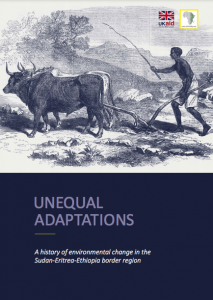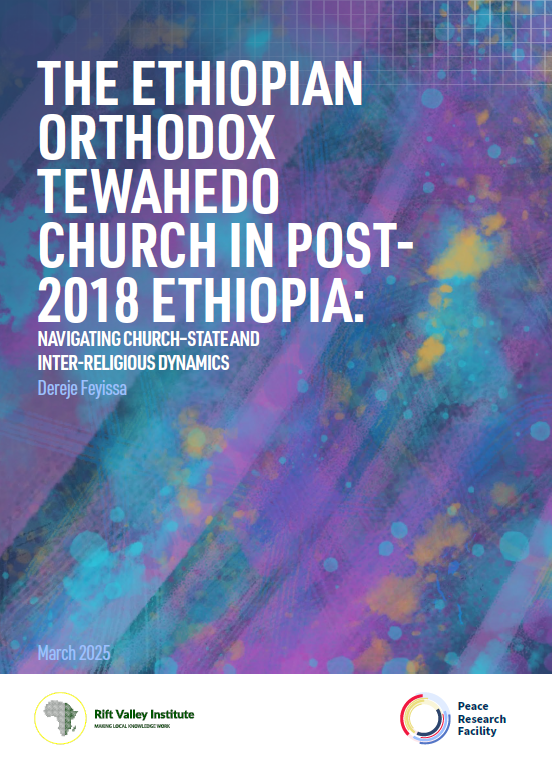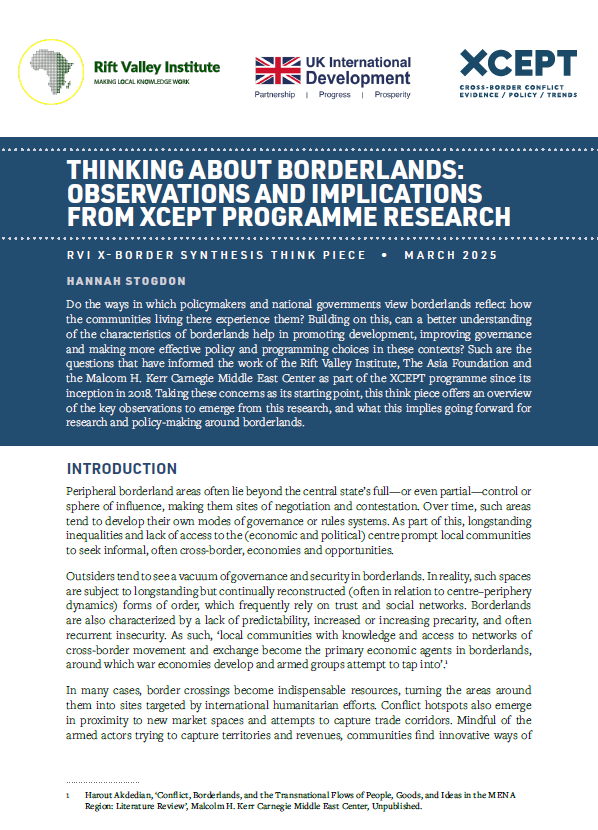The Sudan-Eritrea-Ethiopia border region has long been a place of deep interconnection. Historically, collaboration across ethno-linguistic and religious divides allowed communities to develop life-sustaining complementary strategies for utilizing the region’s natural resources. These traditional patterns of human-environment interaction both offered protection from the region’s normal interannual environmental variability and minimized the harmful effects of droughts, locust plagues and other hazards that threatened harvests and pastures.
Man-made climate change is currently disrupting these long-standing patterns, causing widespread hardship, and making adaptation necessary. In many ways, this contemporary crisis echoes the two previous modern periods of profound environmental change in the region—the climatological shift of the Little Ice Age (c1640-c1820) and the transformation of the regional ecosystem following the 1887 introduction of rinderpest.
Unequal Adaptations reflects on these two historical events and considers how they can help us understand the region’s current adaptation to the urgent challenges posed by environmental change.
This report is a product of the X-Border Local Research Network, a component of the FCDO’s Cross-Border Conflict Evidence, Policy and Trends (XCEPT) programme, funded by UK aid from the UK government. XCEPT brings together leading experts to examine conflict-affected borderlands, how conflicts connect across borders, and the factors that shape violent and peaceful behaviour.



